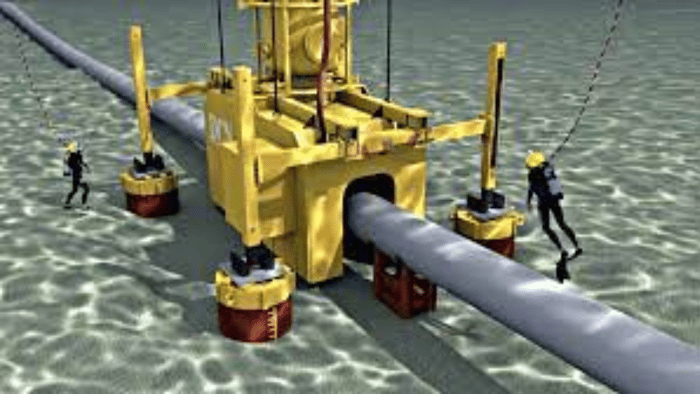
About the Course
This course provides an introduction to oil and gas project management. Participants will explore the various environments for oil and gas projects, gaining an understanding of the critical stages of project development and the FEL (Front-End Loading) process. The course covers essential technical documents, including process flow diagrams (PFDs) and piping and instrumentation diagrams (P&IDs), alongside crucial design considerations such as equipment lists and field layouts.
Material selection, with attention to strength, temperature, and corrosion management, is also examined. Additionally, the course addresses the design and sizing of export systems, including pipelines for flowlines and transmission. Process safety is a key topic, with detailed discussion of frameworks, HAZOP (Hazard and Operability Studies), and HAZID (Hazard Identification). Key industry standards, such as ASME B31.3, B31.4, and B31.8, are also covered.
The project management component introduces participants to effective contracting strategies, cost estimation, and value improving practices (VIP), including life cycle cost analysis. Practical exercises reinforce understanding of life cycle costs. Risk management techniques, including the creation of risk registers and plans, are discussed in detail.
The course concludes with a focus on construction in both onshore and offshore environments, addressing operational readiness, health and safety, and maintenance considerations, ensuring that participants leave with a well-rounded understanding of oil and gas project management.
Course Content
-
Day One
Introduction to Oil & Gas Project Delivery
-
Progression in facilities design
-
Different environments for oil & gas projects
Project Stages & FEL
-
Cost influence curve
-
FEL assessment methods
-
Key Drawings: PFDs & P&ID’s
-
Equipment Lists
-
Field Layout
-
-
Day Two
KTD Cont'd - P&IDs
-
P&ID's: Legend Sheet & Equipment Identification
-
Facility Line Designation
Material Selection
-
Strength & Temperature Considerations
-
Corrosion Management
Export Systems
-
Types of Export Systems
-
Pipelines: Flowlines and Transmission
-
Pipeline Sizing
-
-
Day Three
Process Safety
-
Process Safety Framework
-
HAZOP & HAZID
-
ASME B31.3, ASME B31.4 & ASME B31.8
Project Management Techniques
-
Definition of Specification: SoR & PEP
-
Contracting Strategies
-
Project Cost Estimation
Value Improving Practices (VIP)
-
CAPEX
-
Value Engineering
-
-
Day Four
VIP's Continued - Life Cycle Cost
-
Life Cycle Cost Analysis
-
LCC Exercise
Project Risk Assessment
-
Risk Management Process
-
Risk Register
-
Risk Management Plan
Construction
-
Onshore, Including Desert and Cold Locations
-
Offshore, Including Conventional Depth and Deepwater
Operational Readiness
-
HSE
-
Operations
-
Maintenance
-
Organisation
-
People
-
Learning Outcomes
Upon completion of this course, participants will be able to:
-
Understand the importance of a staged process to execute projects.
-
Appraise key documents used by engineers and project management to execute a project.
-
Evaluate the different types of export systems and understand some key parameters used to size pipelines.
-
Understand the main processes and procedures used to manage projects.
-
Appreciate the importance of process safety in project management and the tools employed.
-
Understand the differences in construction techniques for the different onshore and offshore projects.
-
Class Materials
- Case studies that explore real-world grid integration challenges and their solutions.
- A comprehensive course package detailing all essential topics and technical data.
- Detailed notes from the tutor, Richard, offering additional insights and expertise.
- A collection of references and practical worked examples to deepen understanding and application of the material.
-
Jeenius
Participants in the course gain access to Jeenius, a cutting-edge learning platform that offers comprehensive support tools. This platform includes all course notes, recordings of the sessions for later review, and the opportunity for one-on-one support with the tutor. Additionally, Jeenius provides access to the latest insights in renewable energy enhancing the learning experience with up-to-date industry knowledge.
-
In-Company Delivery
For in-company delivery options and content customisation to meet your specific needs, please don't hesitate to reach out to us.
-
Fee
£2,495 per person.
A discount is available if registering 3+ people.
Your Tutor

Richard Espiner
MEng
LEAD TUTOR
Richard is a chartered mechanical engineer with over 25 years experience in pipeline engineering roles for both consulting and operating companies. He specialises in pipeline integrity management, risk & reliability assessment, defect assessment, and in-line inspection. As a Jee trainer, Richard enjoys meeting the diverse range of delegates which attend our courses, passing on his experiences, and learning from theirs.
Testimonials
"An excellent programme that enhanced my knowledge of renewable technologies and their impact on grid systems"
"The blend of theory and practical insights on new technologies was exactly what I needed. Excellent course!"


